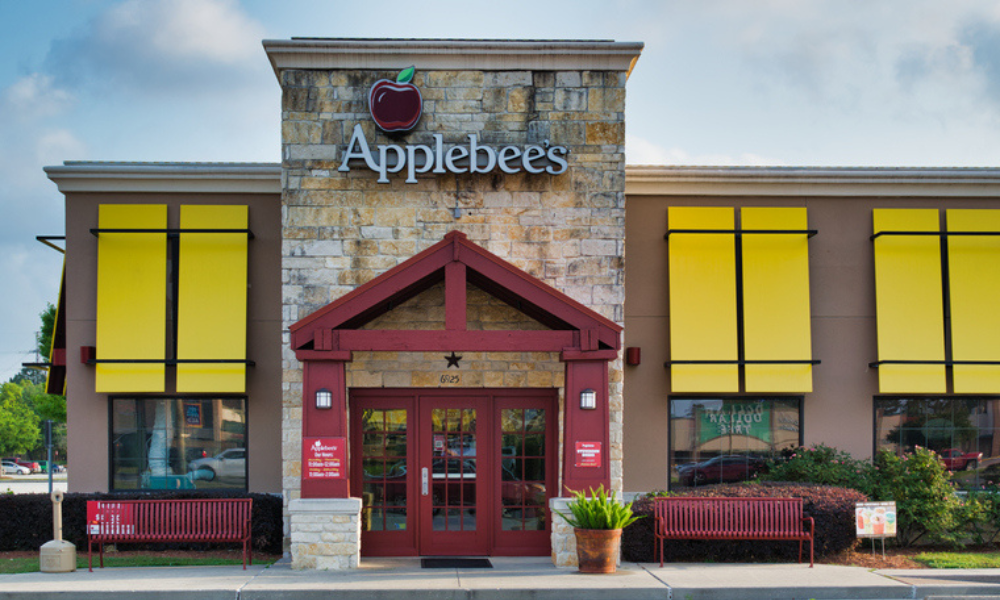
Franchisee agrees to pay six-figure fine as settlement

A franchisee of the well-known restaurant chain Applebee’s recently faced a discrimination lawsuit over sexual orientation and race.
Neighborhood Restaurant Partners (NRP) Florida, LLC, which operates an Applebee’s Neighborhood Bar & Grill restaurant in Plant City, FL, agreed to pay $100,000 to settle the lawsuit, the Equal Employment Opportunity Commission (EEOC) said in a press release.
The federal agency said it filed the lawsuit against the company after it allegedly violated the Civil Rights Act of 1964, which forbids discrimination based on sexual orientation, race, and retaliation.
“At Neighborhood Restaurant Partners Florida, we are committed to maintaining a safe and inclusive environment for all. We have used this isolated incident as a learning opportunity and will make training available to ensure that our restaurants are a place where all feel welcome and respected,” Pamela Jones, vice president of marketing on behalf of Neighborhood Restaurant Partners, told HRD.
Applebee’s, as well as popular chain restaurant IHOP, are owned by Glendale, CA-based Dine Brands Global.
Discrimination in the workplace
Based on EEOC’s lawsuit, two restaurant staff verbally harassed a Black employee by continuously subjecting him to racial and homophobic epithets.
“In addition to making derogatory comments, one of the harassers wore Confederate flag paraphernalia while he was working at the restaurant,” the EEOC said.
The federal agency also said that during the cases of harassment, the employee complained to the restaurant management, yet, the employer never took any appropriate actions. “Eventually, the employee attempted to contact NRP’s corporate offices. After this, his scheduled hours were cut, and he was forced to quit,” the EEOC said.
Read more: Dine Brands Global CPO: ‘Difficult decisions served us well’ during pandemic
According to the federal agency, the three-year consent decree settling the lawsuit required NRP to pay $100,000 in monetary relief and provide training on sexual orientation and race discrimination to its management to ensure that they are mindful of their responsibilities to stop workplace discrimination and address complaints.
“The decree also requires NRP to appoint an internal consent decree monitor to review complaints of sexual orientation and race-based harassment and provide EEOC with reports of harassment complaints which also describe its actions taken in response to the complaint,” the EEOC said.
Caution for employers
Following the lawsuit, EEOC Regional Attorney Robert Weisberg reminded the public that employees don’t deserve any homophobic and racist harassment by co-workers regardless of background or status.
“Failing to take corrective action to correct a work environment permeated with racial and homophobic slurs, and, even worse, punishing an employee for reporting harassment, will not be tolerated,” Weisberg said.
EEOC Chair Charlotte Burrows also said that in all instances, not only during Pride Month, the federal agency is committed to strictly enforcing the Civil Rights Act to protect people against sexual orientation and gender identity discrimination.
“This case also shows that racist slurs and paraphernalia remain a persistent problem that employers should be prepared to address in prompt and effective ways,” Burrows said.
Meanwhile, EEOC’s Tampa field officer Evangeline Hawthorne said that while the U.S. Supreme Court’s decision in Bostock vs. Clayton County, Georgie was a significant leap, LGBTQ+ employees still suffer from discrimination in the workplace.
“The EEOC is committed to taking action where an employer treats an individual differently because of his or her sexual orientation or race,” Hawthorne said.
Based on EEOC’s press release, it filed suit against the company in the U.S. District Court for the Middle District of Florida after “first attempting to reach a pre-litigation settlement through its conciliation process.”